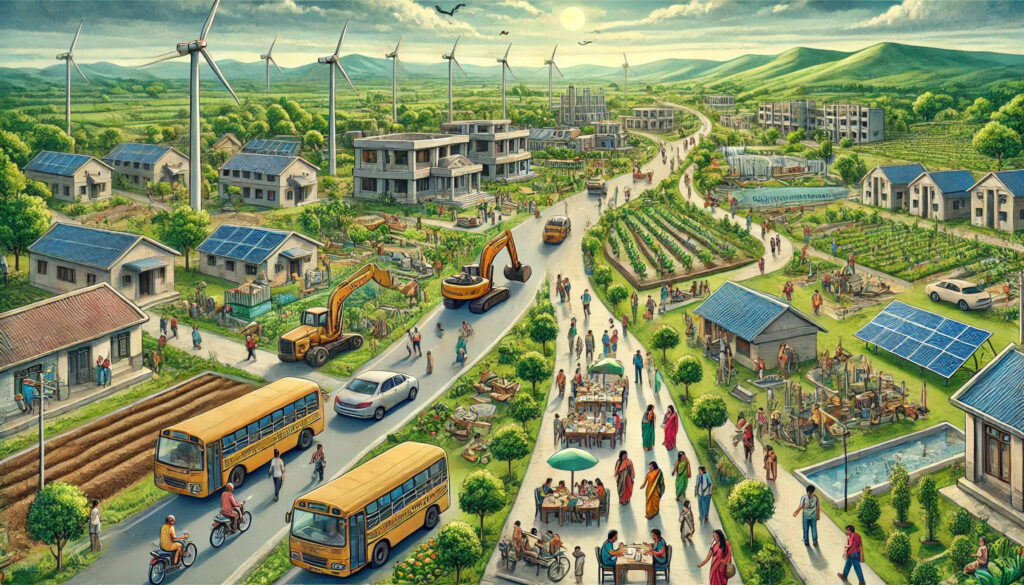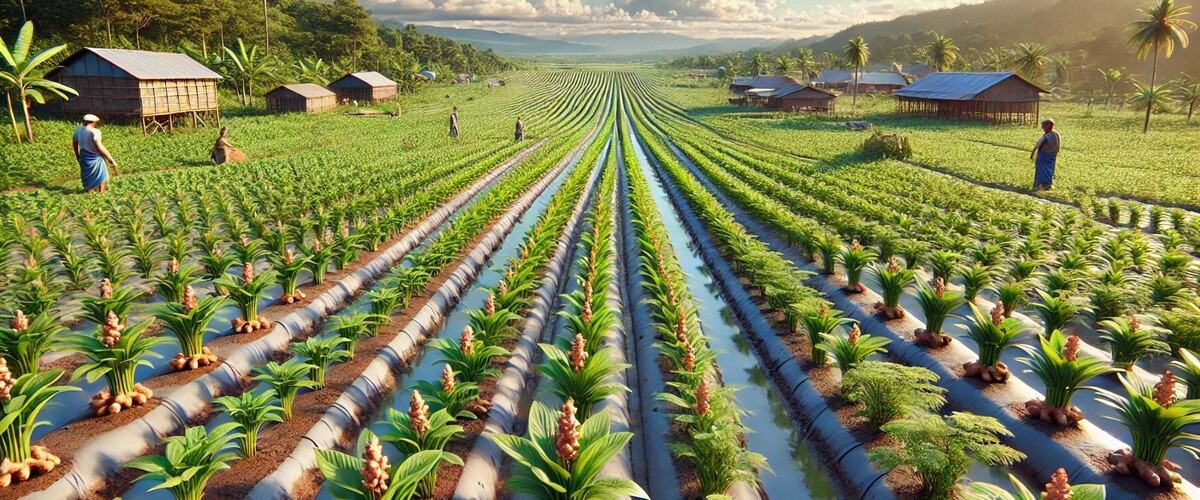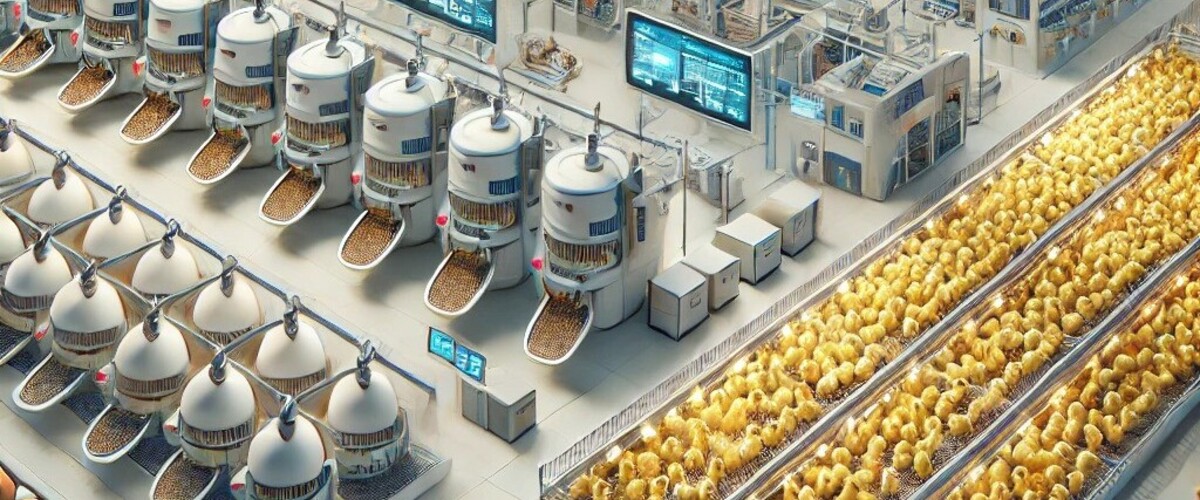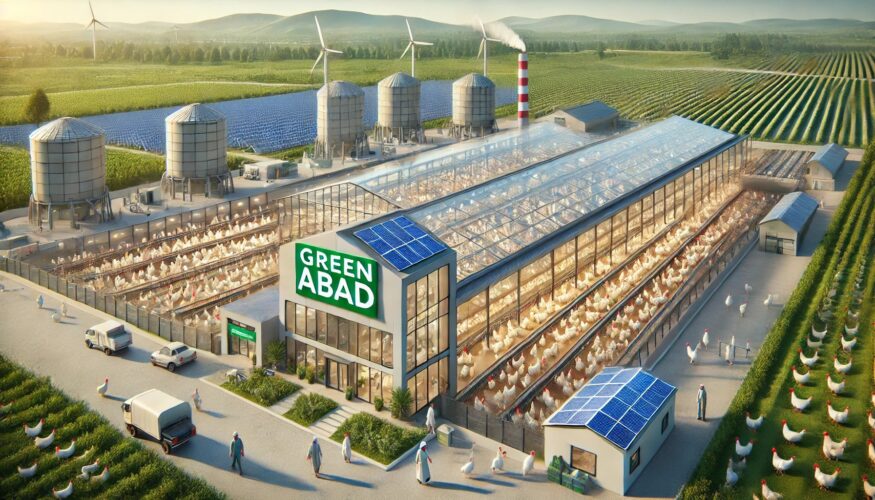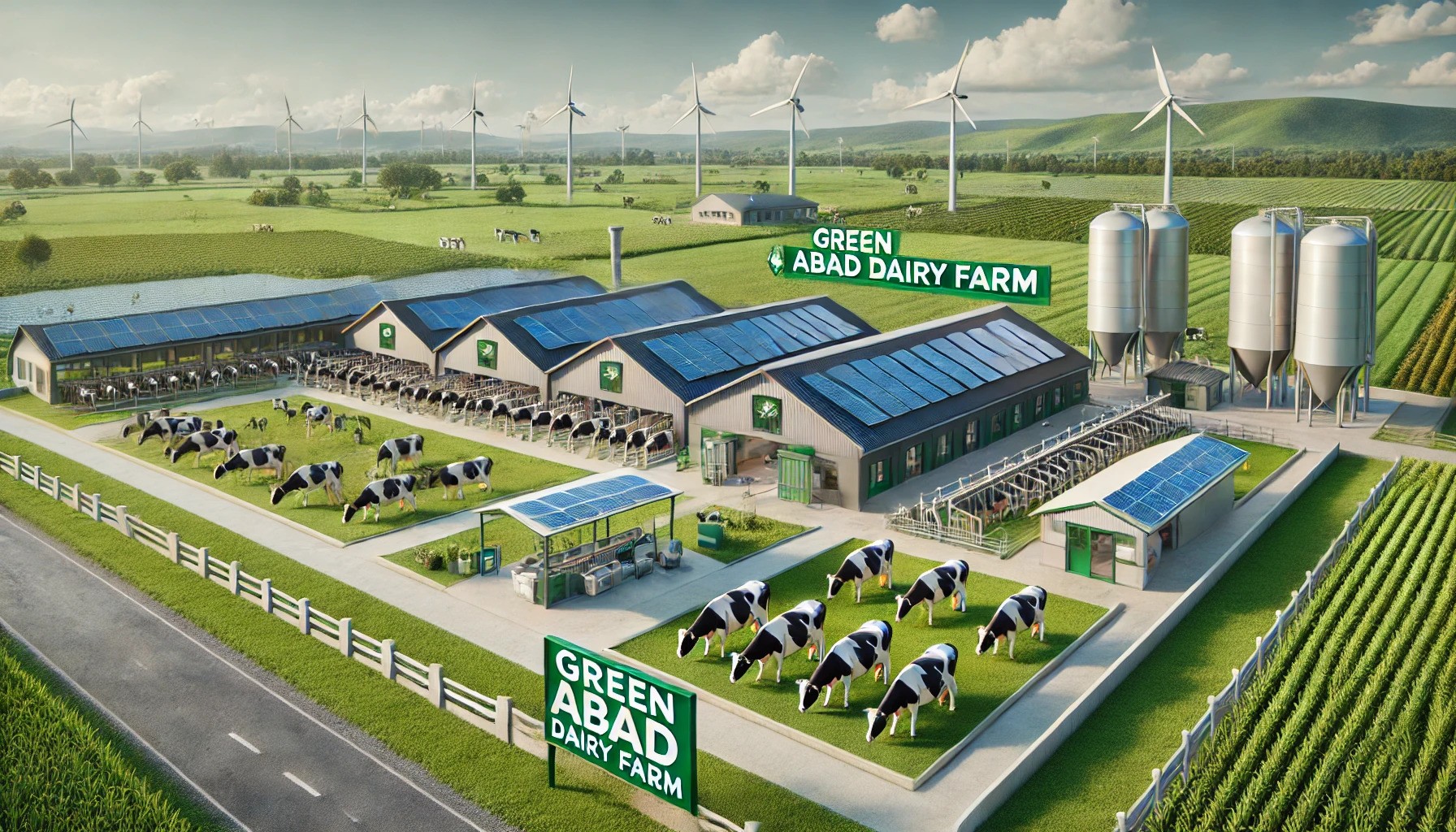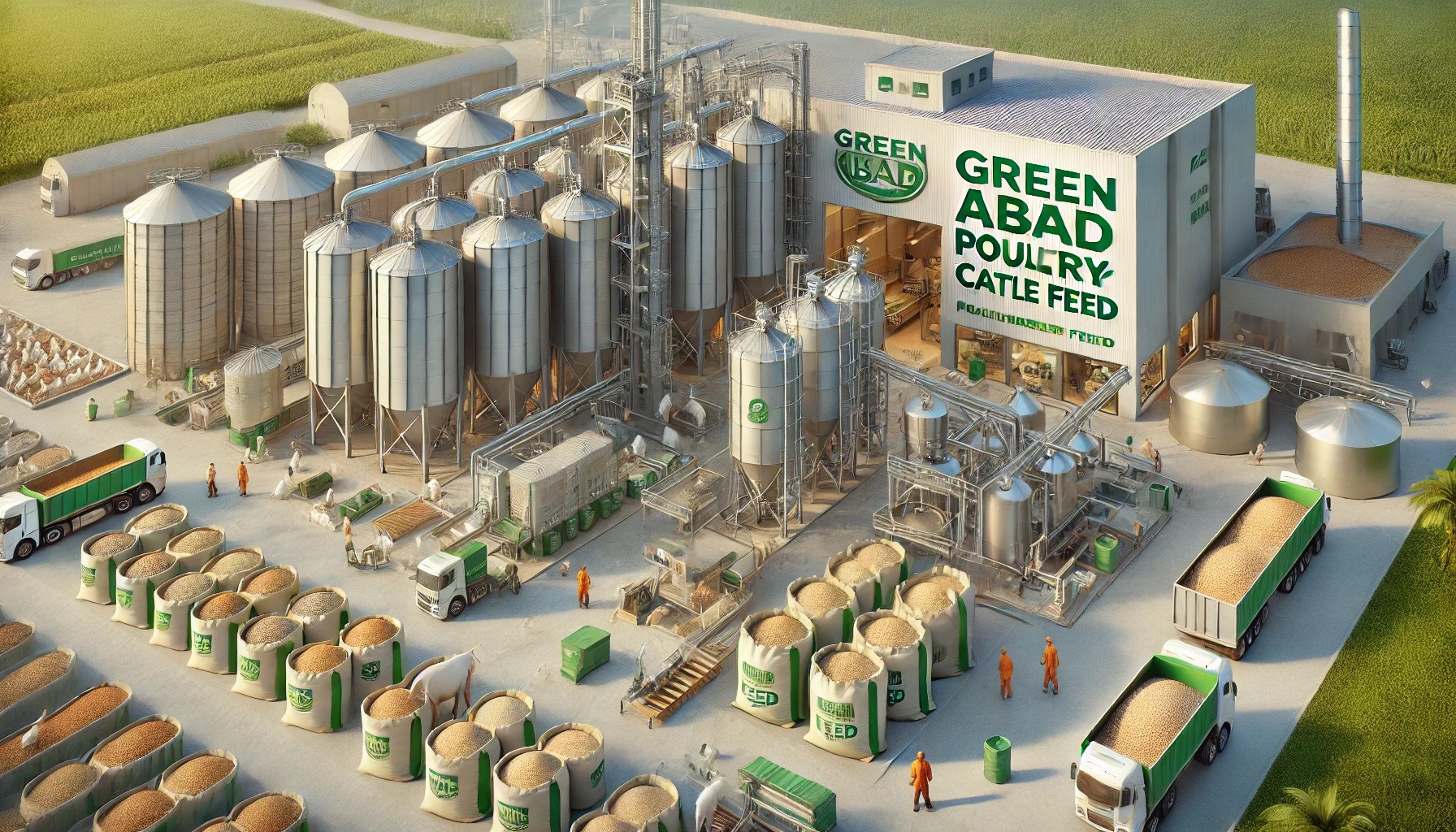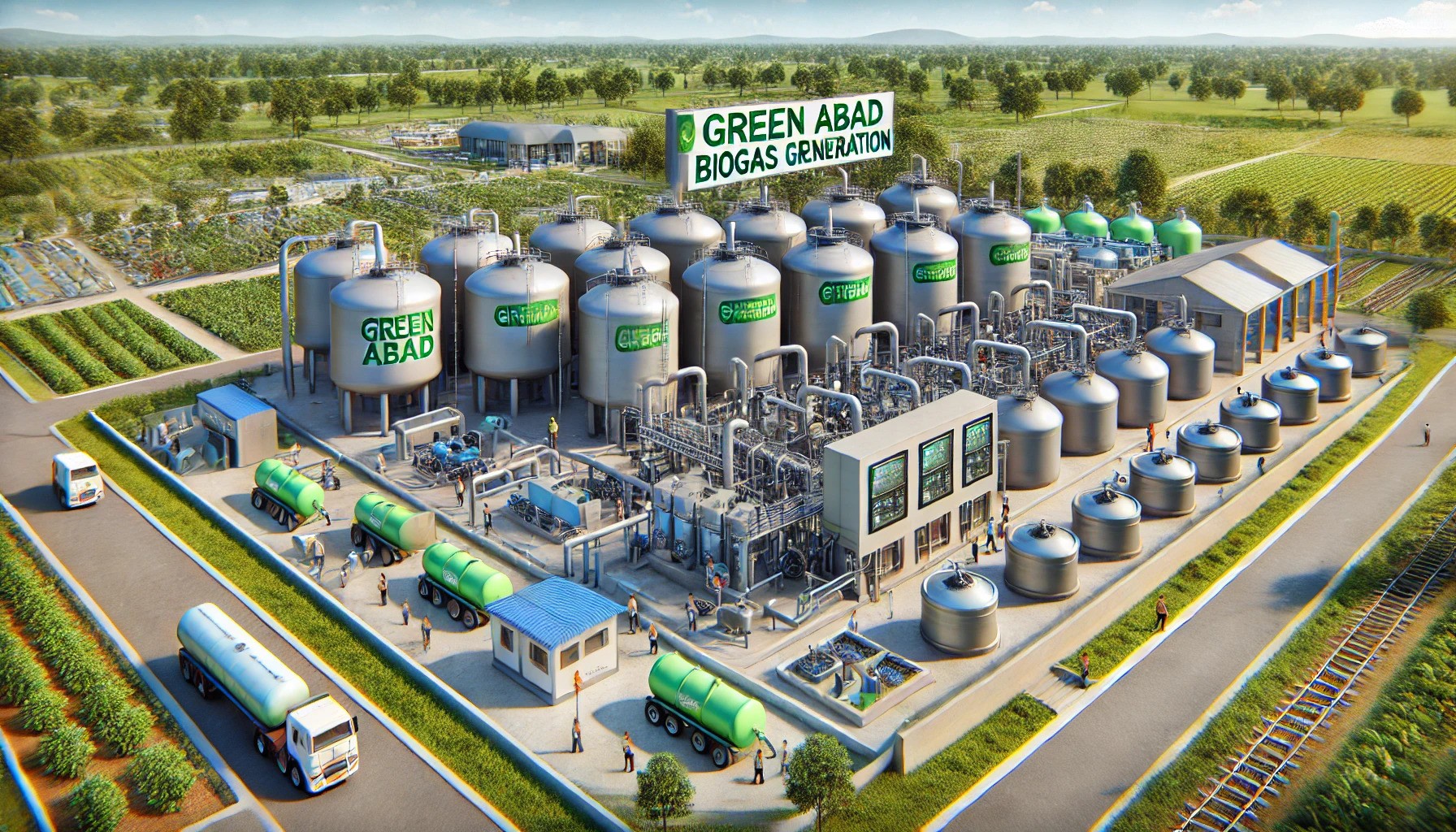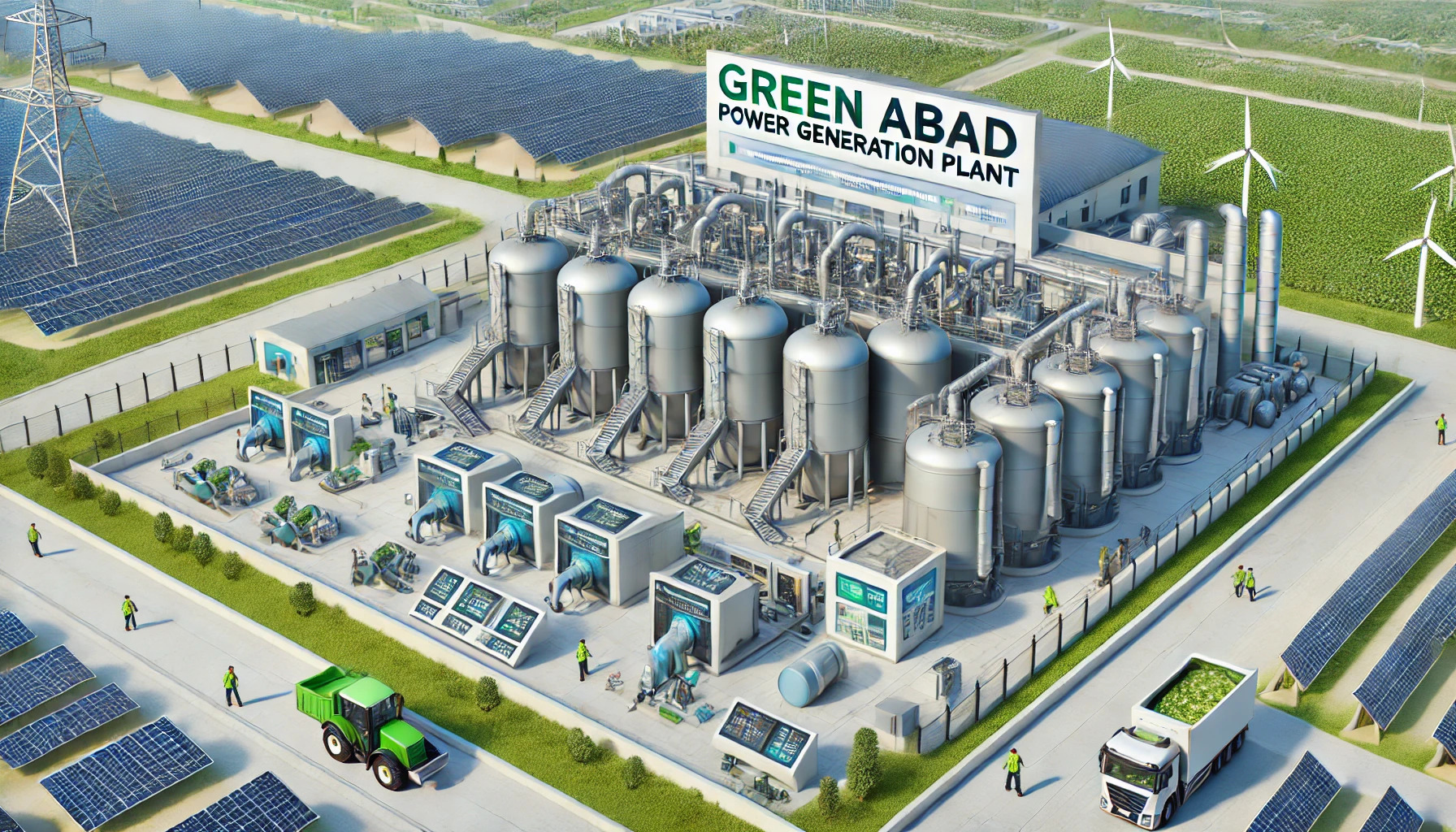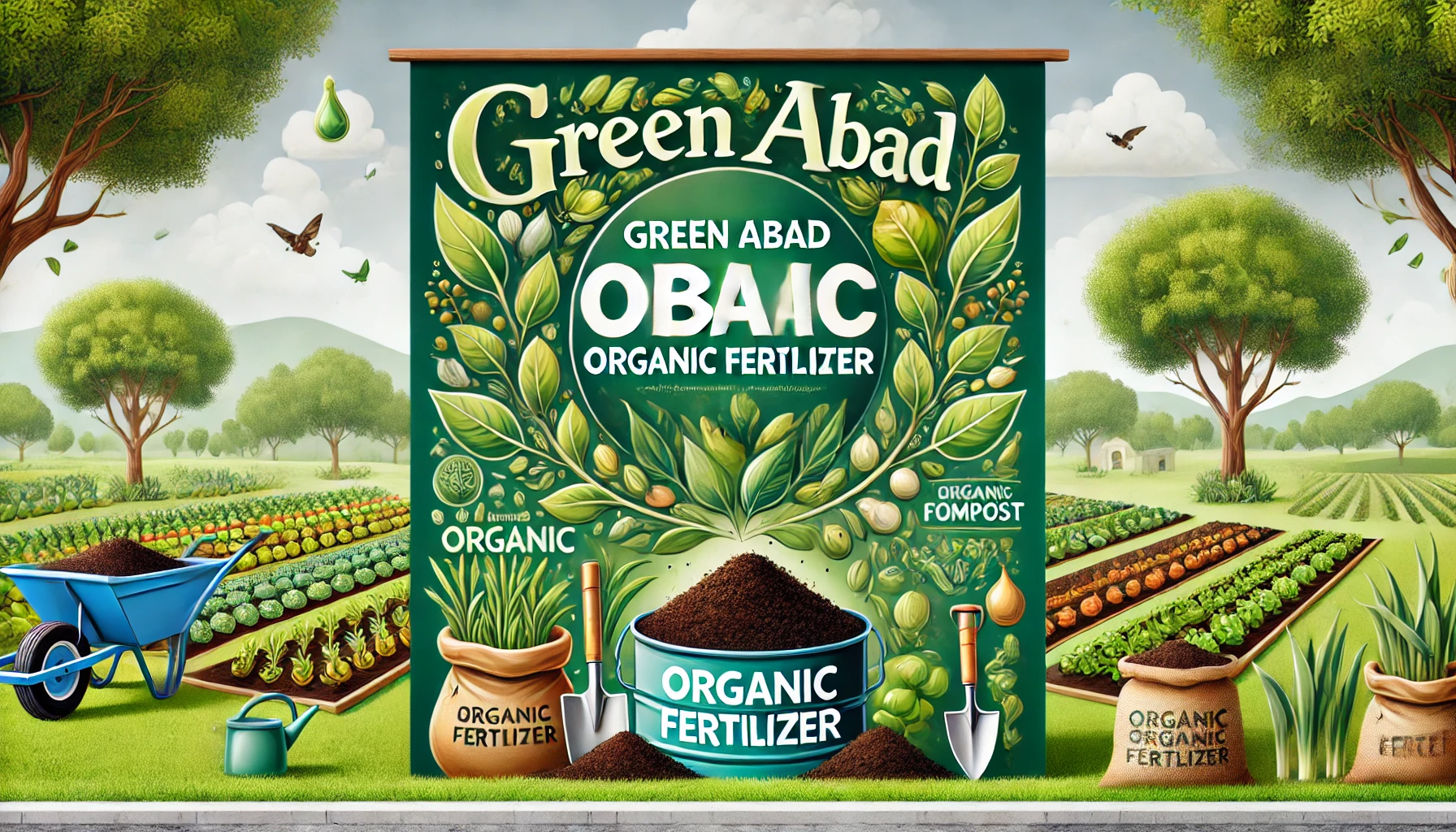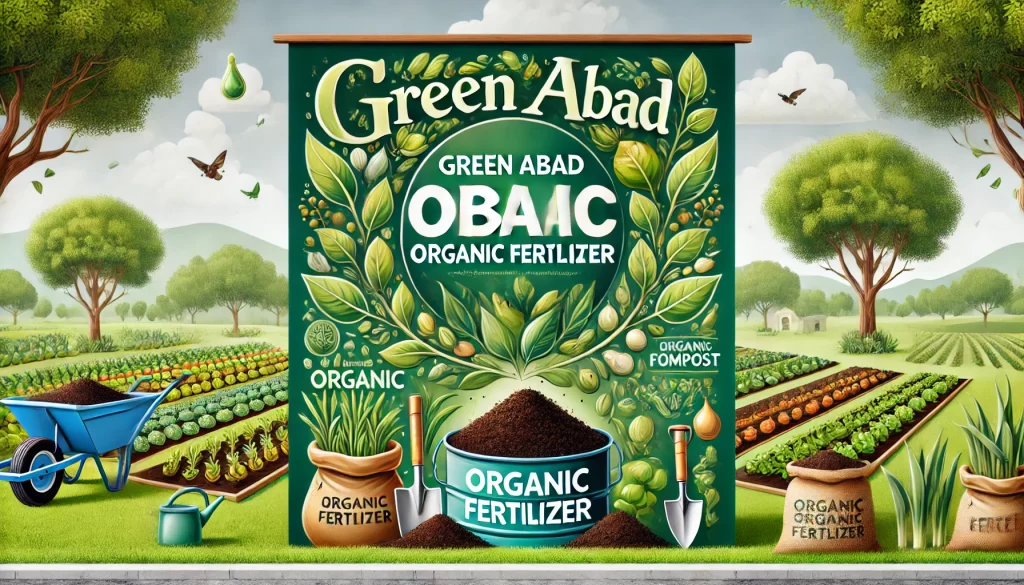
In the next couple of years, the product differentiation strategy of the company will involve the output of organic fertilizers from wastes produced by the integrated farm. The raw materials to be used in the Green Abad Organic Fertilizer project will be animal excreta and food waste from ginger farms, chicken farms, dairy farms crop waste, and vegetable waste. The purpose is to achieve the preparation of organic fertilizers of excellent quality that can be used to improve the fertility of agricultural crops in compliance with organic farming. Thus, the very transformation of waste into useful products simultaneously contributes to environmental concerns and minimizes the expenses of waste disposal. This fits into Green Abad’s drive to strive for environmentally friendly solutions as well as improved soil health as well as farming systems to support the future. Also, the project shall enhance job opportunities for waste collection, processing, and fertilizers production in the region hence supplementing the local economy development as well as improving farmer’s livelihoods.
Technological Advancements
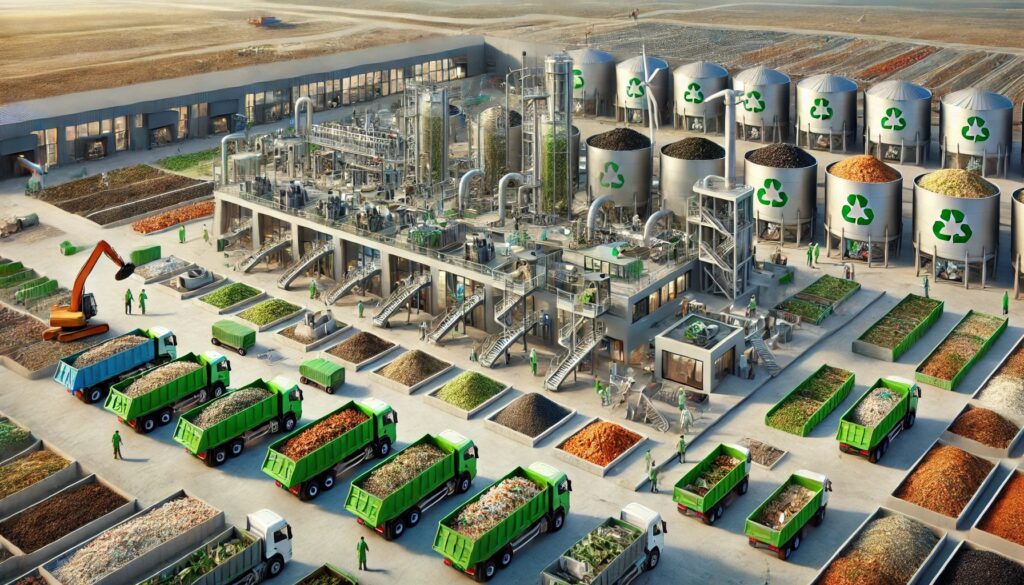
Waste Collection and Processing: It will involve efficient systems of collection and processing for the various wastes. The most advanced technologies in waste management today will be put into practice to ensure that the animal excreta, food wastes, crop residues, and vegetable wastes are effectively gathered and processed into valuable organic fertilizers. Such techniques include composting techniques, anaerobic digestion, and vermicomposting to turn waste into a nutrient-rich compost. The challenge remains to ensure uniformity and quality in the fertilizers produced, given the basis of their production calls for careful control and monitoring throughout. This makes technology integration very important in optimizing efficiency and effectiveness in waste processing to result in high-quality organic fertilizers.
Automation and Quality Control: The aim of the project is to introduce automation into the production process of organic fertilizers with a view to enhancing efficiency and maintaining uniform quality standards. Mixing, aeration, and temperature control in the composting process will be mechanized. Then, there will be sensors and monitoring devices that lay down data on progress and quality relative to the status of the composting materials. In turn, this will ensure that adjustments are precise and optimal to offer the best conditions needed for microbial action and decomposition. AI-driven systems will analyze data in real-time to offer insight and useful recommendations toward the betterment of this composting process. Automating quality control at each and every step will enhance productivity, besides minimizing dependence on human resources coupled with their expenses and other vast improvements in efficiency.
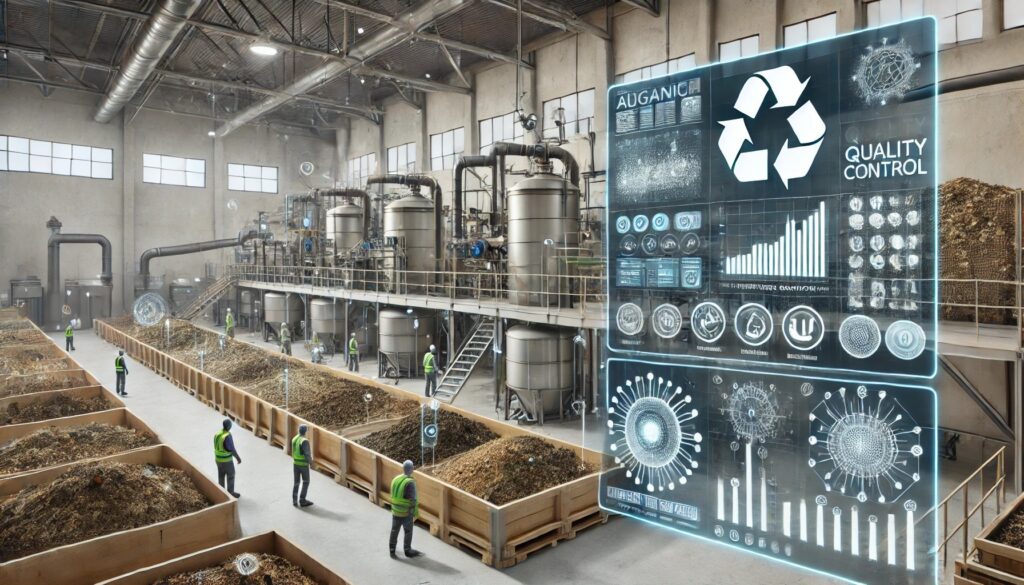
Facilities
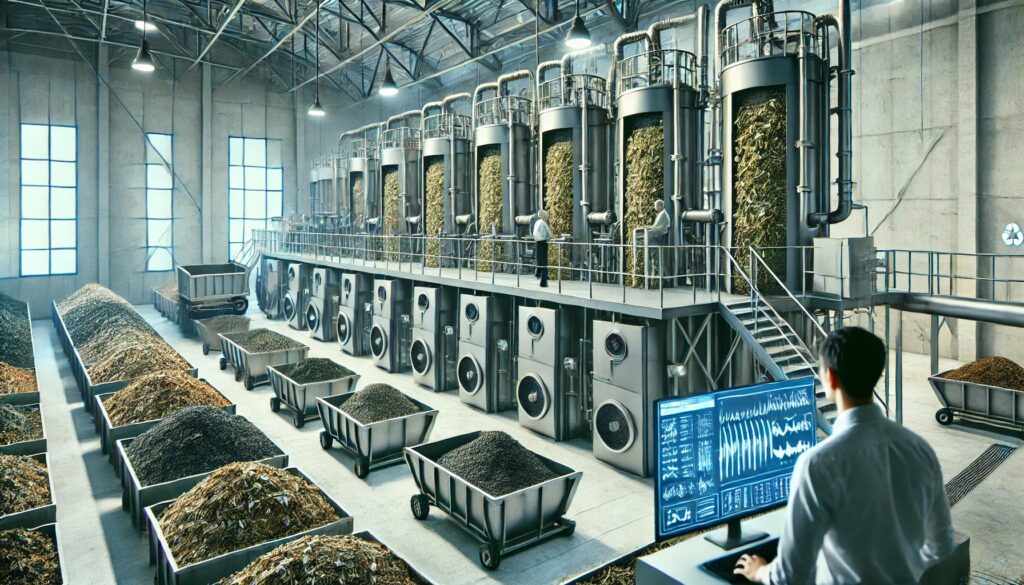
Composting Units: Modern composting units that aid in efficient decomposition with the technology are going to be set up in the place. For this purpose, large volumes of waste materials will be handled by these units under optimum conditions for microbial activity. Aeration systems, moisture control mechanisms, and temperature control will be fitted in the composting units to enhance the processes of decomposition that will induce the other microflora in decomposing the waste materials. It will also be installed with monitoring systems to keep on track the progress and quality of the compost. Test–With the state-of-the art facilities for composting, Green Abad aims to produce high quality organic fertilizers, high in key nutrients, and beneficial microorganisms so that more healthy plants more plants will grow healthy and soils will be fertile.
Storage and Packaging: Them, under the project, will demonstrate modern storage and packaging facilities that will guarantee adequate preserving and diffusion measures for organic fertilizers. The stated facilities will be developed in a manner that enhances maintenance of fertilizer product quality and freshness, meaning there will be no spoiling or degradation. The facilities are scheduled to be put into place with climate control systems that moderate temperature and humidity, thus keeping the fertilizers in the best possible state. Packaging systems now exist in automated ways, which shall be vital in conducting this huge mass packaging exercise of different sizes and forms for use by different customers. The storage and packaging facilities will be very vital in maintaining the integrity and effectiveness of the organic-fertilizers, making it possible for Green Abad to supply the market with quality products.
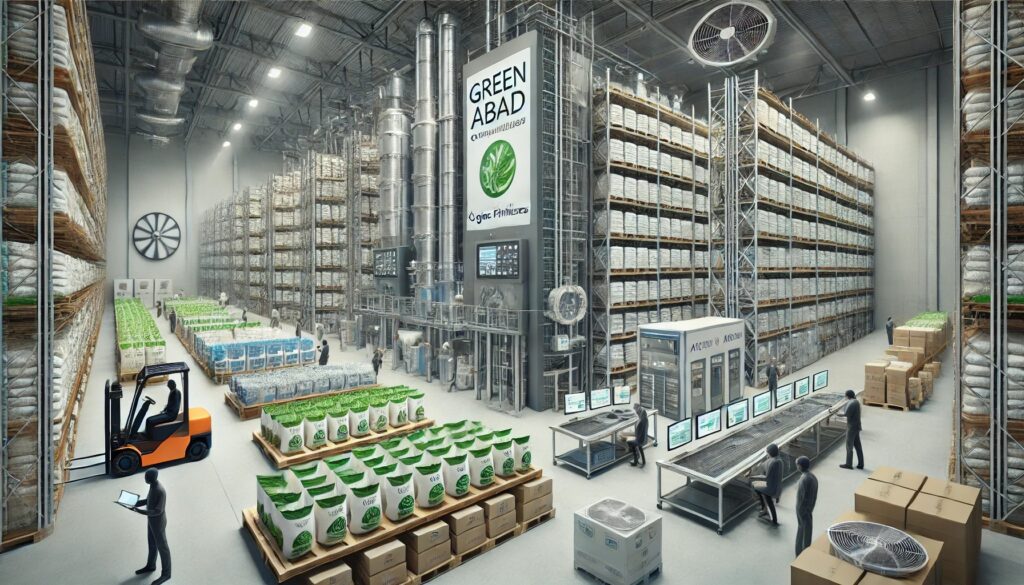
Environmental Impact
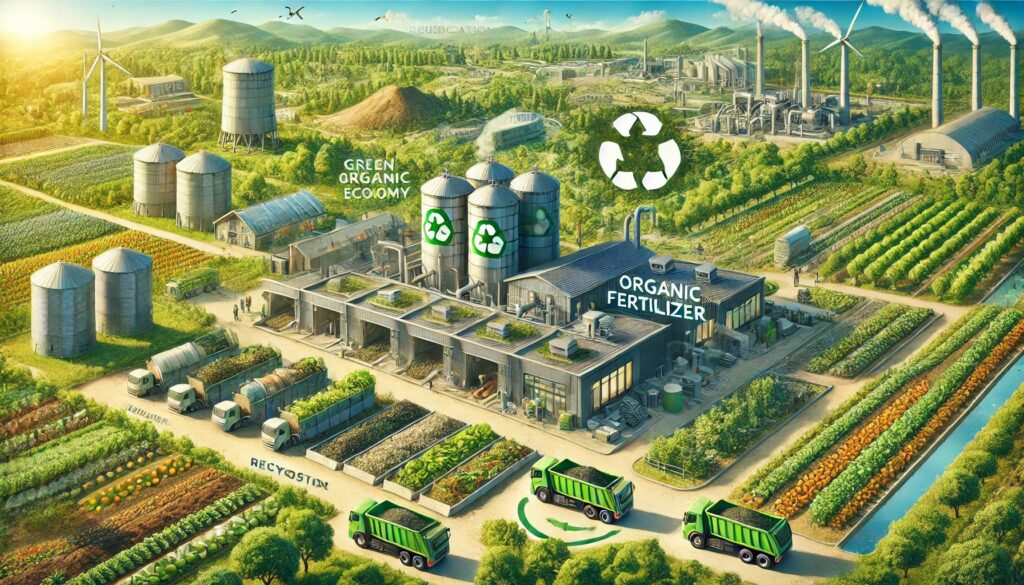
Sustainable Waste Management: The Green Abad Organic Fertilizer project will therefore help in sustainable waste management through the worthy utilization of the agricultural and organic waste materials. Landfills and incinerators in which mass quantities of dispossessing wastes enhance more pollution into the environment and increase GHG emissions; surely, this project will diminish these impacts by reutilizing those wastes and producing organic fertilizers. Organic fertilization use will reduce the use of synthetic fertilizers which have deleterious effects on soil health and water quality. In addition, the project will further promote recycling of nutrients and organic matter for stabilized agricultural activities aimed at enhancing soil fertility and structure. By promoting recycling, the project will induce a circular economy of sustainable waste management, where waste no longer represents harm but instead serves as a resource for enhanced agricultural productivity.
Reducing Chemical Inputs: There would also be a significant reduction in the dependence on a high amount of chemical fertilizers and pesticides for agricultural practices. The organic fertilizers also provide a slow-release nutrient source to plants, resulting in better soil health and fertility over time. They enhance the capacity of the soil to hold water, thus reducing the need for excess irrigation. A major contention also is that risks of soil degradation, water pollution, and effects on useful soil organisms will be minimized with limited reliance on chemical inputs. The approach also goes in line with the Green Abad philosophy—keeping agricultural ecosystem management on the course of sustainable and environmentally sound practices that will maintain the health and productivity of the agricultural ecosystem in the long term.
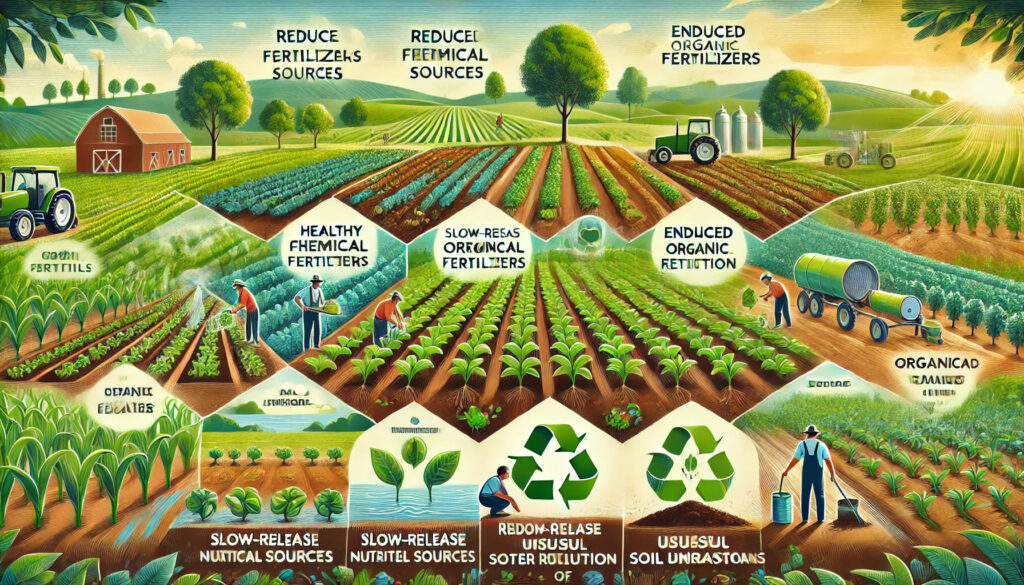
Economic Benefits
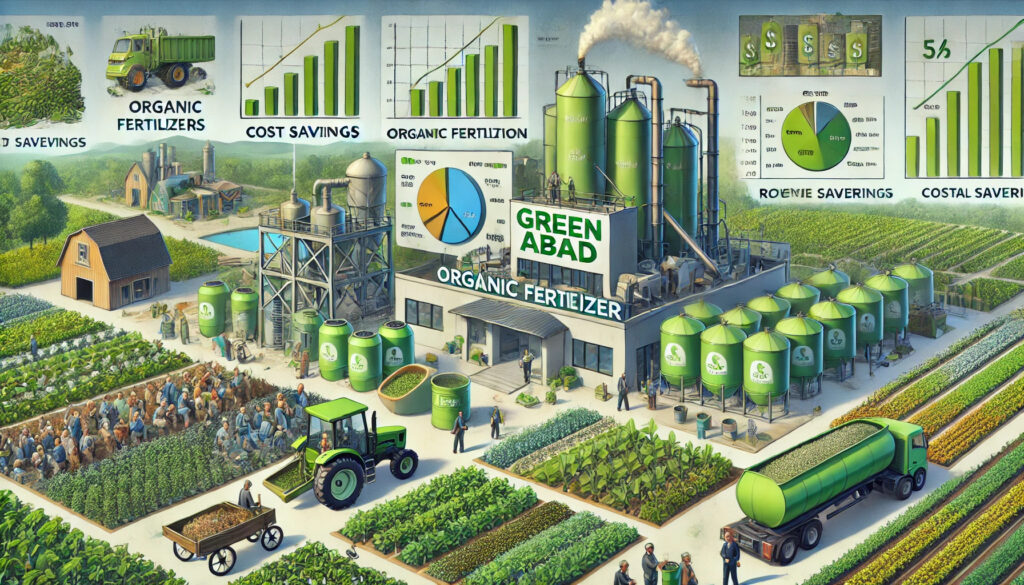
Cost Savings and Revenue Generation: The Green Abad Organic Fertilizer project will lead to a lot of costs savings since wastes that would be discharged often will be recycled. The direct improvement of the project will be the generation of a new source of revenue for the company through the conversion of waste into organic fertilizers. The production and selling of organic fertilizers will create source of income thus help in the financial sustainability of the company. In addition, through the application of organic fertilizers, the purchase of synthetic fertilizers will be minimized thus will cost farmers a lot of money. It will make the organic farming even more profitable and thus more popular among farmers, and push the development of the organic fertilizer market forward.
Market Expansion and Job Creation: These markets will create new opportunities for Green Abad by developing and supplying superior organic fertilizers for the increasing market of eco-friendly agricultural facilitators. The new company will be in a position to sell the organic fertilizers to the farmers, agricultural societies and export them to the world market. Through this healthy market expansion it is believed that the company’s overall revenue and market share will grow bringing Green Abad as one of the top organic fertilizer producers in the country. Also, the project will directly generate a lot of employment opportunities in collection, handling and processing of waste materials, making of products, packing, and transportation. On the economic front, overall employment opportunities within the region and business activities will experience a boost thus overall development of the local area.
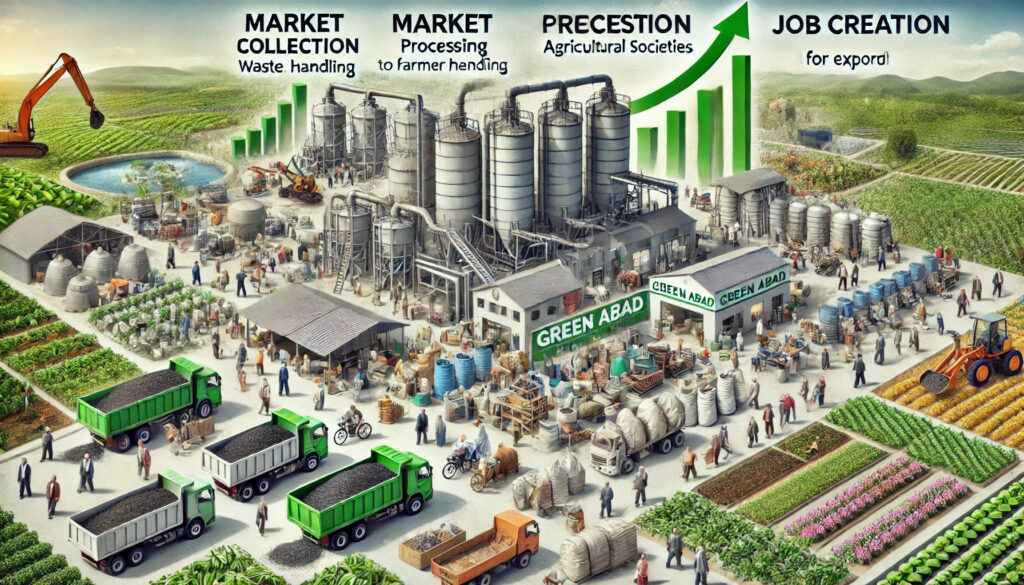
Social Contributions
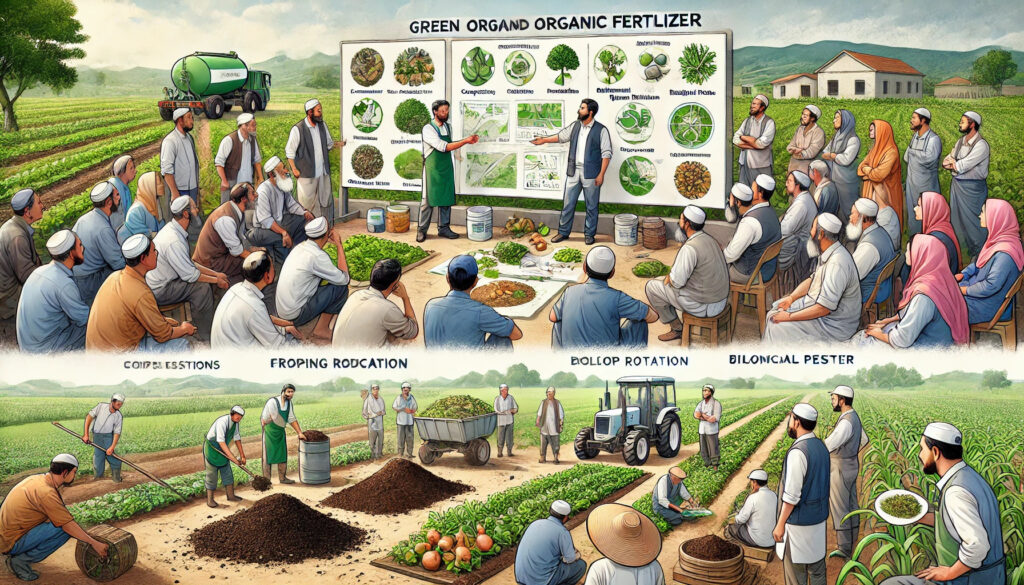
Farmer Training and Education: The Green Abad Organic Fertilizer will be a great factor in increasing the knowledge and skills of the local farmers entail in training given to them. Appreciation of organic fertilizer Organic farming techniques will be explained to farmers importance of the use of organic fertilizer, how to compost and ways of improving the soil condition. It can include subjects like crop rotation, use of different crops in the same piece of land, and controlling pests through biological methods. Through providing farmers with knowledge and skills on proper and effective use of organic fertilizers, the project is likely to achieve it’s goal of improving sustainable agriculture food production and soil health. This education will also increase their understanding with regards to the need to manage waste and conserve the environment amongst farmers.
Community Development: It shall be noted that the project will impact the general growth of the communities through infrastructural and social undertakings. The transportation and access problems are also to be solved by Green Abad through new roads construction and rehabilitation of other road networks. This will enhance the flow of traffic both human and material goods and positively boost the economy of the area. The company will also embark on construction of schools, and enhancement of schools to avail sound education to children. These initiatives are meant to foster the mentioned community to become healthy, self-sustaining and productive society that has better living conditions through effective infrastructure and education. These aspects will ensure that Green Abad directly invests in community development which is important for long-term mutually beneficial relations with people living in the area.
